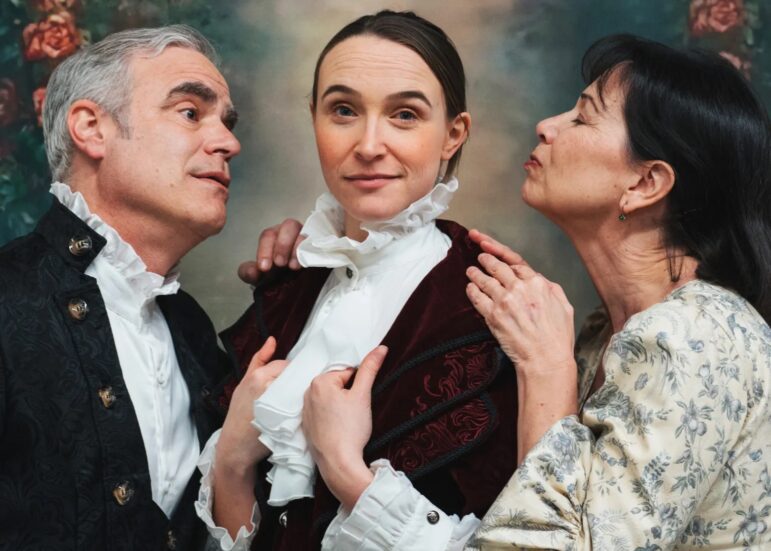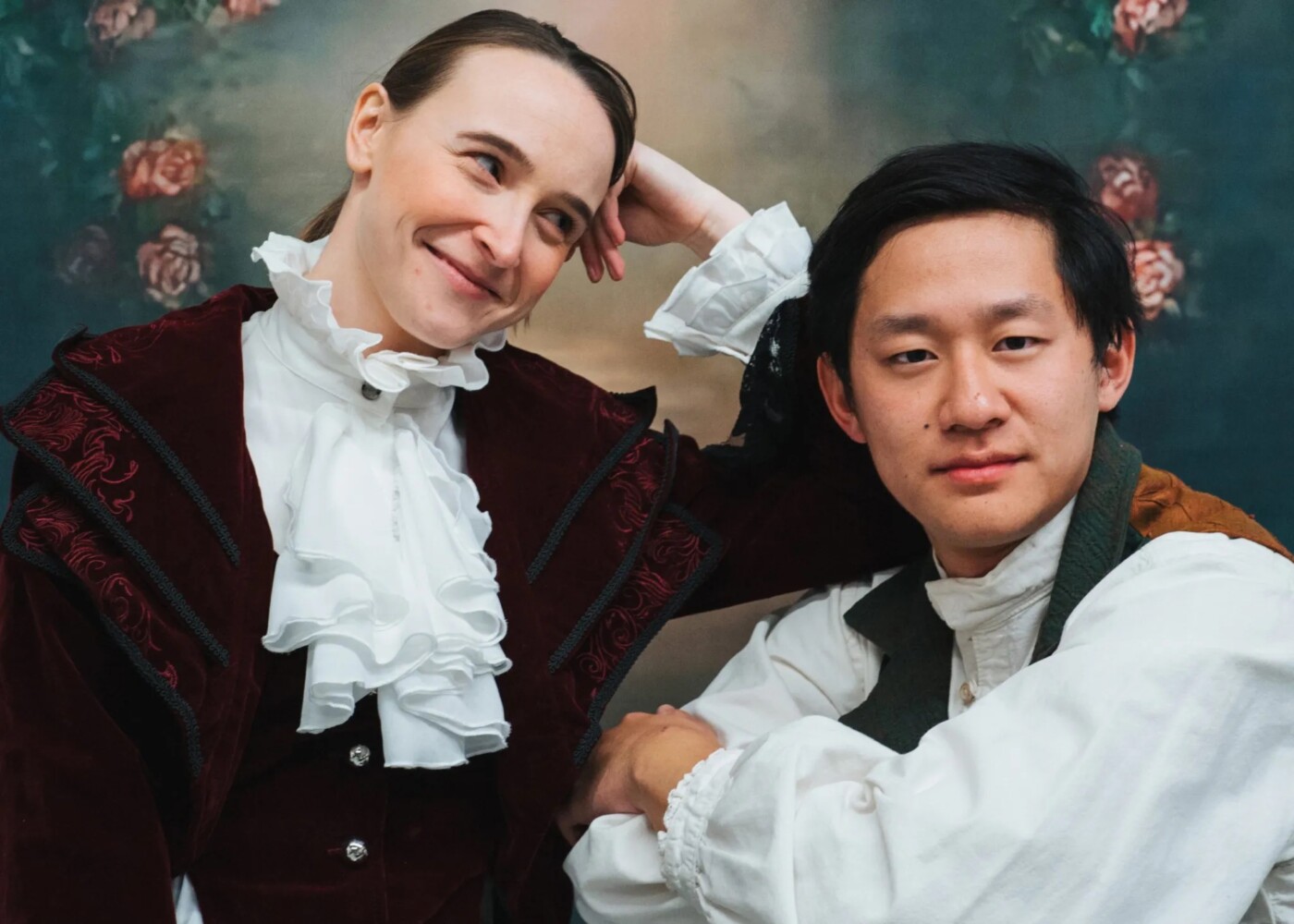Patrick Dooley, founding artistic director of Berkeley’s Shotgun Players, has been thinking about “The Triumph of Love” for the past 30 years.
He was transported when, as a young man of 25, he saw a production of Pierre Carlet de Chamblain de Marivaux’s 18th-century French romantic comedy at Berkeley Repertory Theatre. It was adapted and directed by Stephen Wadsworth.
“I’ll never forget the last 30 seconds,” Dooley says, by phone, a few days before the tech rehearsal of his own upcoming production of the three-act play, also in Wadsworth’s translation. “I don’t know why [it] touched me,” he muses, of the play’s poignant, melancholy conclusion.
“Le triomphe de l’amour,” in which Léonide, the princess of Sparta, disguises herself as a man to win the heart of Agis, the rightful heir to the throne of Sparta—and, along the way, purposefully seduces a rationalist philosopher and his devoted sister (it’s complicated)—does not end happily for all the characters. It’s that examination of the joy as well as the heartbreak of love that so entranced Dooley.
This is one of the most well-known of Marivaux’s many plays (including the popular “The Game of Love and Chance”) that the playwright-novelist-journalist wrote for both the Comédie Française and the Comédie Italienne of Paris. (Next to those of Molière, his comedies were the most frequently performed in France—but that was in the 19th century, well after he died, in poverty, in 1763.) Modern productions have followed—not just Wadsworth’s, which debuted at the McCarter Theatre Center at Princeton in 1992, but also a 1997 Broadway musical adaptation and a 2001 film version.
Dooley, who has directed dozens of plays since the company’s inception, chose it to open Shotgun’s 31st season, which, he says, circles the theme of love in all its complexities.
“We’re not the theater that normally chooses [a seasonal theme],” he says. “Normally, it’s ‘what plays do we want to produce?’”
Still, he found himself thinking about love in his life—he’s married with three daughters—and “how not to take it for granted, what it means when you make yourself open and vulnerable to a state of love, to be disappointed or hurt or for things to not go well. To opening yourself up to being in an intimate living relationship and for the tragedy and pain and anxiety and grief and loss, all those things that go hand in hand with it.”
He adds, “As I’m aging, I think about how I want to spend the moments, days, years I have left…”
In the play, the intellectual freethinker Hermocrate and his sister Leontine have foresworn love, eschewing the ups and downs of romance for a pure life of the mind. But the considerably younger Leonide is so smitten at first sight by Hermocrate’s student, Agis, that she recklessly manipulates the loveless pair of siblings in her carefully crafted attempt to capture Agis’ heart (and to restore him to the throne).

Hermocrate’s two servants—one a witty, commedia-style Harlequin, the other a dull-witted gardener—and Leonide’s own maid, also disguised as a man, help coordinate the ruse.
Dooley says he considered other plays for the season opener, but kept coming back to Marivaux. “Heartbreak, or even heart shift, is something I’m learning to embrace in my life,” he says.
“What is there for me to learn about avoiding heartbreak? How can I embrace that, warts and all, learn from that, make something beautiful from that? I wanted to explore and wrestle with that.”
The three-act play is not without its challenges. For Dooley, it’s mainly about the acting: It must be utterly authentic.
The seating is in the round, a garden setting with some of the audience onstage. “There’s no place [for actors] to hide,” he says. “Some of the audience is closer to you than your scene partner. They can smell you.”
Yet Leonide (played by Veronica Renner) must convincingly channel her passion for Agis into speeches that will break the reserve of both Hemocrate and Leontine—utterly truthful acting required, he told Renner. “That’s hard. It’s been fun, too.
“There’s no physical intimacy,” he adds, “but there are cross-generational love things happening that are kind of intense.”
Meanwhile, Shotgun Players as a company has COVID-era challenges as well, challenges that theater companies throughout the country share.
“Folks have gotten out of the habit of going to theater,” sighs Dooley. He speculates that audiences don’t want plays that are going to scare them or rattle them too much. “They’re looking to reconnect with joy. The language in this play is beautiful, there’s some pathos, there’s difficult stuff to maneuver, but ultimately it’s about the opportunity that exists for all of us to reconnect with love if we’re up for it.
“We’re looking for plays that do that. It’s safe to come back to theater!”
Shotgun Players’ “The Triumph of Love” runs through April 23 at Ashby Stage, 1901 Ashby Ave., Berkeley, with live streams on April 6 and April 13. Tickets are $28-$48 at shotgunplayers.org.
